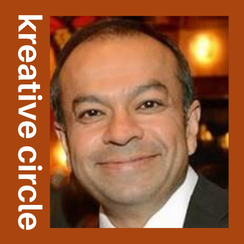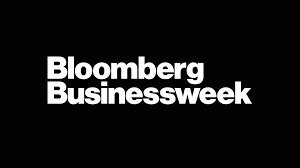Rocky, it's nice to meet you! You are celebrated as a financial guru guiding individuals and businesses to actualizing life abundance. Where does your affinity for finance emanate from?
Ever since I was a kid, I wanted to become a millionaire. I'm not sure where the thought came from, but I remember always wanting to make money. As a high school student, I was always reading the Wall Street Journal and other financial magazines. I would listen to financial radio shows. Even with all that knowledge, I still made many mistakes. I also started earning money at a young age. My paper route taught me customer service, which led to big tips! I also started buying electronics in NYC wholesale district, marking them up 100% and selling them to my friends and teachers. I'm still learning and improving my skills to help others create and grow wealth.
You've held very respectable positions in your career path. What are some insights you've acquired working as an Enrolled Agent IRS? Did it change your outlook on how people manage their money and investments?
I have always been interested in learning about the tax code. It's selfish as I am looking for ways to reduce my tax burden. Taxes are my number expense, even more than what my mortgage used to be! When I review tax returns, the numbers tell me a story. From there, I can ask my clients questions and help them to make better financial decisions. The tax returns highlight many of the mistakes they are making in their financial decisions. I can see how much they are saving in a retirement plan, and much outside of retirement accounts. Many times I notice they need to refinance their mortgage because their rate is 2% - 3% above market rates. That alone can save them thousands of dollars a year.
If you could re-write or refine any principles of finance (or money management), what would those top two principles read?
Automating your savings is the number one way to ensure you build wealth. Remove yourself from having to take action every month. Everyone needs an investment philosophy that is based on math, statistics and historical patterns. This will remove human emotion from the decision-making process that leads us to get excited and fearful thus buying high and selling low. Fidelity did a study of their best investors and found they were either dead or forgot they had accounts. We interfere with our financial success through emotions!
Our upbringing grooms our mindset to approach challenges from a healthy perspective. Your mom passed away when you were seven years old. How did her presence, and lack of presence, impact your lifestyle choices at a young age? What advice do you have for children grieving through a similar loss?
Her loss did create a long grieving process. It also required me to learn new skills and build grit and determination. Many of our mindsets and beliefs are created between the ages of five and thirteen. As an adult, we need to test the decisions we made as children to ensure that they still serve us. I would advise children who are grieving the loss have conversations and share their feelings instead of keeping it bottled up. We all need to go back and examine how we behave based on our childhood lessons and ensure our current behaviors are serving our adult selves.
If you had to reconnect with a '20-year-old Rocky' today, what guidance would you offer him on love and money? Were there any suppressed belief systems you've had to cut from your mind & heart to actualize your life successes?
I could write a book on this topic. The mindsets and beliefs I had a 20 were quite detrimental to my success. Despite that, I still achieved life success. But I could have achieved much more success had an earlier point and with less effort. A lot of the fears and doubts we have at 20 are not real, and if we only take the time to have vulnerable conversations, we would come to realize this. The world was quite different at that time, and the ability to connect was far more difficult. The role models we had and societal norms around relationships were incorrect. We had to be tough and do it alone, which is the wrong attitude. I still consistently work to improve my beliefs to this day. If I met my 20-year-old self, I would correct all the bad mindsets that I had and explain how the future was about to change dramatically from the past. I would also tell myself I am enough. I would encourage my younger self to watch for trends in an ever-changing world and think through how I could be at the leading edge of disruption.
Your work encourages business owners to exercise good sense. Organizations, like humans, need a constant flow of resources to ensure development. What are two elements in organizations valued as equitably to air and water for survival?
For businesses, good cash flow and a healthy profit margin are the keys to success. Business owners need to take profits first and ensure they are always paid. When businesses have healthy profits, they can afford to solve their problems. However, money should not be the first solution to the problem. Companies tend to use up all the resources that are available. We need to instill limits on this and create automated systems to ensure that cash is flowing where it belongs and we spend appropriately.
The word "yet" is referenced in setting up the premise of your work as an advisor and coach. What were a few "yets" in your life that provided an opportunity for your growth?
Yet is a very powerful word in that it makes the impossible possible.
It seems like every day is a new "yet". We are all continually striving to improve ourselves and making ourselves better. Every time we reach a new level, we realize another level opens up. It's a constant struggle of facing our fears, stepping into the unknown, and making change.
I have stepped up many times to try something new that I didn't know how to accomplish yet. From coaching my kid's sports teams, investing in real estate, and leaving a JOB (just about broke) and starting my own business.
We live in a world of immediate gratification. It is compromising our society at a very swift pace. What measures can adults immediately exercise to improve their finances within the first 30 days? How can parents prevent their children from engaging in similar missteps that lead to a never-ending cycle of financial despair?
We need to stop spending money on our wants and only focus on our needs. All that stuff we bought has made us happy, or has it made us broke? Unfortunately, we live in a time where we are marketed to 24/7, and the messages are everywhere. We have to learn to stop being consumers and become producers. Take a challenge of no spending other than necessities for the next 30 days and see what happens to your wallet and happiness levels.
When children are provided a finite amount of money that is theirs, they naturally learn to control their spending over time. We gave our kids their age an allowance and instructed them to create three envelopes. Money to give, money to spend, money to save. This spending and saving buckets were equal. Then when they wanted things, they had their own money and could make their own choices. We would talk about their choices and the decisions they made and help them evaluate if they were good or bad. We shared options and ways of purchasing items in ways that would save them money. Parents need to let their kids struggle and be without instead of spoiling them. Parent's actions will go far further than their words in teaching lessons.
Delayed gratification is a mature outlook to groom financial security. Life is also about living to its fullest. How do you enjoy life in your leisure with your loved ones? Do you have any celebratory rituals when you achieve personal and professional milestones?
You can live life to its fullest without spending a lot of money. We enjoy travel and experiences however, we find ways to enjoy them at a discount. For example, we would go to Disney for 14 days because the extra 10-day ticket was only a few dollars more than a 3-day ticket. We would stay in timeshare rentals that were cheaper than hotels and provided three times the space and included a kitchen to reheat or cook meals. We don't have a lot of celebratory rituals. Many rituals like a wedding become extravagant affairs that are not worth the money. Society too often is chasing the wrong path and spending a lot of money because we are conditioned to.
If Warren Buffet called you up for advice, what matter do you suspect he'd like to discuss? If you had to ask him for advice, what would you want to know?
Warren would probably call me to learn about how to be a good father and husband. While he's a master at making investments grow, he has not done an outstanding job with his family.
I would ask Warren what opportunities he sees in the market today that I can take advantage of due to the smaller size of my investments, but somebody like him could not. This is because he would overpower the market or it would not provide enough total return to him. It's a lot easier to invest million dollars versus a billion dollars.
Please share with audiences where and how they can support your work.
Richer Soul: www.richersoul.com
Profit Comes First: www.profitcomesfirst.com
Twitter: @rockylalvani
Ever since I was a kid, I wanted to become a millionaire. I'm not sure where the thought came from, but I remember always wanting to make money. As a high school student, I was always reading the Wall Street Journal and other financial magazines. I would listen to financial radio shows. Even with all that knowledge, I still made many mistakes. I also started earning money at a young age. My paper route taught me customer service, which led to big tips! I also started buying electronics in NYC wholesale district, marking them up 100% and selling them to my friends and teachers. I'm still learning and improving my skills to help others create and grow wealth.
You've held very respectable positions in your career path. What are some insights you've acquired working as an Enrolled Agent IRS? Did it change your outlook on how people manage their money and investments?
I have always been interested in learning about the tax code. It's selfish as I am looking for ways to reduce my tax burden. Taxes are my number expense, even more than what my mortgage used to be! When I review tax returns, the numbers tell me a story. From there, I can ask my clients questions and help them to make better financial decisions. The tax returns highlight many of the mistakes they are making in their financial decisions. I can see how much they are saving in a retirement plan, and much outside of retirement accounts. Many times I notice they need to refinance their mortgage because their rate is 2% - 3% above market rates. That alone can save them thousands of dollars a year.
If you could re-write or refine any principles of finance (or money management), what would those top two principles read?
Automating your savings is the number one way to ensure you build wealth. Remove yourself from having to take action every month. Everyone needs an investment philosophy that is based on math, statistics and historical patterns. This will remove human emotion from the decision-making process that leads us to get excited and fearful thus buying high and selling low. Fidelity did a study of their best investors and found they were either dead or forgot they had accounts. We interfere with our financial success through emotions!
Our upbringing grooms our mindset to approach challenges from a healthy perspective. Your mom passed away when you were seven years old. How did her presence, and lack of presence, impact your lifestyle choices at a young age? What advice do you have for children grieving through a similar loss?
Her loss did create a long grieving process. It also required me to learn new skills and build grit and determination. Many of our mindsets and beliefs are created between the ages of five and thirteen. As an adult, we need to test the decisions we made as children to ensure that they still serve us. I would advise children who are grieving the loss have conversations and share their feelings instead of keeping it bottled up. We all need to go back and examine how we behave based on our childhood lessons and ensure our current behaviors are serving our adult selves.
If you had to reconnect with a '20-year-old Rocky' today, what guidance would you offer him on love and money? Were there any suppressed belief systems you've had to cut from your mind & heart to actualize your life successes?
I could write a book on this topic. The mindsets and beliefs I had a 20 were quite detrimental to my success. Despite that, I still achieved life success. But I could have achieved much more success had an earlier point and with less effort. A lot of the fears and doubts we have at 20 are not real, and if we only take the time to have vulnerable conversations, we would come to realize this. The world was quite different at that time, and the ability to connect was far more difficult. The role models we had and societal norms around relationships were incorrect. We had to be tough and do it alone, which is the wrong attitude. I still consistently work to improve my beliefs to this day. If I met my 20-year-old self, I would correct all the bad mindsets that I had and explain how the future was about to change dramatically from the past. I would also tell myself I am enough. I would encourage my younger self to watch for trends in an ever-changing world and think through how I could be at the leading edge of disruption.
Your work encourages business owners to exercise good sense. Organizations, like humans, need a constant flow of resources to ensure development. What are two elements in organizations valued as equitably to air and water for survival?
For businesses, good cash flow and a healthy profit margin are the keys to success. Business owners need to take profits first and ensure they are always paid. When businesses have healthy profits, they can afford to solve their problems. However, money should not be the first solution to the problem. Companies tend to use up all the resources that are available. We need to instill limits on this and create automated systems to ensure that cash is flowing where it belongs and we spend appropriately.
The word "yet" is referenced in setting up the premise of your work as an advisor and coach. What were a few "yets" in your life that provided an opportunity for your growth?
Yet is a very powerful word in that it makes the impossible possible.
It seems like every day is a new "yet". We are all continually striving to improve ourselves and making ourselves better. Every time we reach a new level, we realize another level opens up. It's a constant struggle of facing our fears, stepping into the unknown, and making change.
I have stepped up many times to try something new that I didn't know how to accomplish yet. From coaching my kid's sports teams, investing in real estate, and leaving a JOB (just about broke) and starting my own business.
We live in a world of immediate gratification. It is compromising our society at a very swift pace. What measures can adults immediately exercise to improve their finances within the first 30 days? How can parents prevent their children from engaging in similar missteps that lead to a never-ending cycle of financial despair?
We need to stop spending money on our wants and only focus on our needs. All that stuff we bought has made us happy, or has it made us broke? Unfortunately, we live in a time where we are marketed to 24/7, and the messages are everywhere. We have to learn to stop being consumers and become producers. Take a challenge of no spending other than necessities for the next 30 days and see what happens to your wallet and happiness levels.
When children are provided a finite amount of money that is theirs, they naturally learn to control their spending over time. We gave our kids their age an allowance and instructed them to create three envelopes. Money to give, money to spend, money to save. This spending and saving buckets were equal. Then when they wanted things, they had their own money and could make their own choices. We would talk about their choices and the decisions they made and help them evaluate if they were good or bad. We shared options and ways of purchasing items in ways that would save them money. Parents need to let their kids struggle and be without instead of spoiling them. Parent's actions will go far further than their words in teaching lessons.
Delayed gratification is a mature outlook to groom financial security. Life is also about living to its fullest. How do you enjoy life in your leisure with your loved ones? Do you have any celebratory rituals when you achieve personal and professional milestones?
You can live life to its fullest without spending a lot of money. We enjoy travel and experiences however, we find ways to enjoy them at a discount. For example, we would go to Disney for 14 days because the extra 10-day ticket was only a few dollars more than a 3-day ticket. We would stay in timeshare rentals that were cheaper than hotels and provided three times the space and included a kitchen to reheat or cook meals. We don't have a lot of celebratory rituals. Many rituals like a wedding become extravagant affairs that are not worth the money. Society too often is chasing the wrong path and spending a lot of money because we are conditioned to.
If Warren Buffet called you up for advice, what matter do you suspect he'd like to discuss? If you had to ask him for advice, what would you want to know?
Warren would probably call me to learn about how to be a good father and husband. While he's a master at making investments grow, he has not done an outstanding job with his family.
I would ask Warren what opportunities he sees in the market today that I can take advantage of due to the smaller size of my investments, but somebody like him could not. This is because he would overpower the market or it would not provide enough total return to him. It's a lot easier to invest million dollars versus a billion dollars.
Please share with audiences where and how they can support your work.
Richer Soul: www.richersoul.com
Profit Comes First: www.profitcomesfirst.com
Twitter: @rockylalvani















